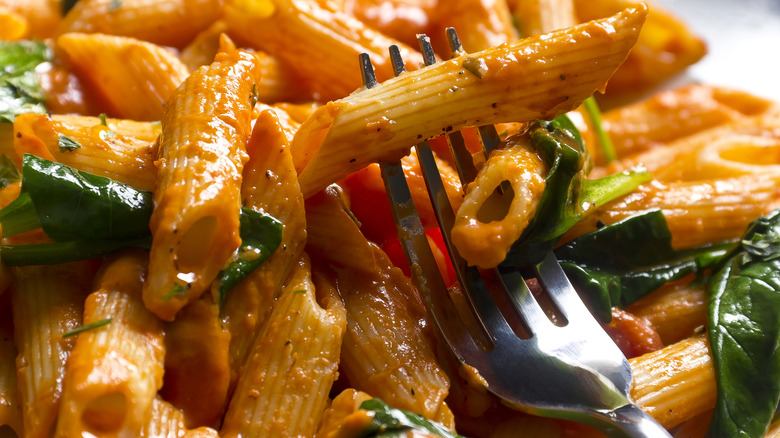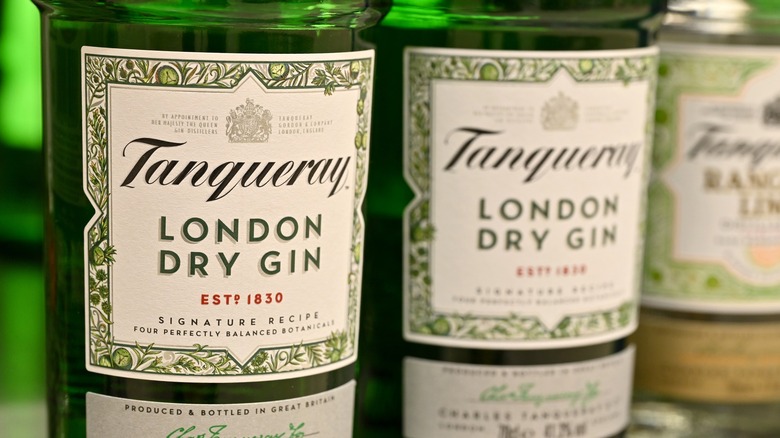Out Of Vodka? Try Gin In Your Next Tomato Sauce
Halfway through cooking a vat of penne alla vodka, disaster strikes. You grab a bottle of the titular ingredient from your liquor cabinet — and realize you're down to your last drop. Don't skip the booze entirely: Alcohol plays an important role in the recipe. But why? And why use gin instead?
While vodka doesn't have much taste, it is part of the reason why the dish is so tasty. Alcohol has special properties that help release aromas; this makes it a popular base for perfume. That's why vodka is the core ingredient for this aromatic, flavorful sauce, enhancing some flavors while softening the acidic taste of the tomatoes.
Vodka serves a textural purpose, too. Most vodka sauces contain cream, which is prone to separating when exposed to acid. Alcohol works as an emulsifier in the pasta sauce, helping the acidic tomatoes and the fatty cream blend for a silky smooth result.
Sure, a splash of peach schnapps would work as an emulsifier, too, but the taste will clash with the rest of the flavors. Head back to your liquor cabinet and pick out a bottle of gin. Gin works just as well — or even better — than vodka. Why? Well, for one, the herbaceous liquor is already pretty similar to vodka. Both are neutral spirits typically made from grain alcohol (yes, you've been wrong about vodka). The only real difference is that gin contains juniper. It's this that sets gin apart — and makes it an appealing addition to vodka sauce.
Gin adds subtle flavors to your sauce
Even without the vodka, vodka sauce has a lot going on. Flavors like tomato, red pepper, and garlic all vie for your attention. That's why the nearly flavorless spirit serves the dish well: A hearty red wine would just add to the commotion. But gin has just enough extra flavor to add a fresh, green note without overpowering the dish. The herbaceous juniper pairs well with red pepper giving the dish a brighter taste that's much lighter than if you added wine.
While food historians aren't sure where penne alla vodka originated, it's not exactly old school. Modern vodka sauce didn't hit the scene until the 1970s or 1980s, but the historical record suggests that booze was used to add extra flavor from the start. One possible source is the 1974 Italian cookbook "L'abbuffone" by Ugo Tognazzi, which featured a recipe for penne arrabbiata, meaning angry penne. The spicy take on traditional red sauce wasn't new, but this recipe kicked things up a notch by adding chili-flavored vodka to enhance the spice. Consider taking a page from "L'abbuffone" and experimenting with other flavors if you want to get adventurous.
So what if you're out of vodka and gin? Don't reach for the peach schnapps just yet; mescal can add a smoky note. Or check out Tasting Table's suggestions for vodka substitutes if you prefer to go a non-alcoholic route.

